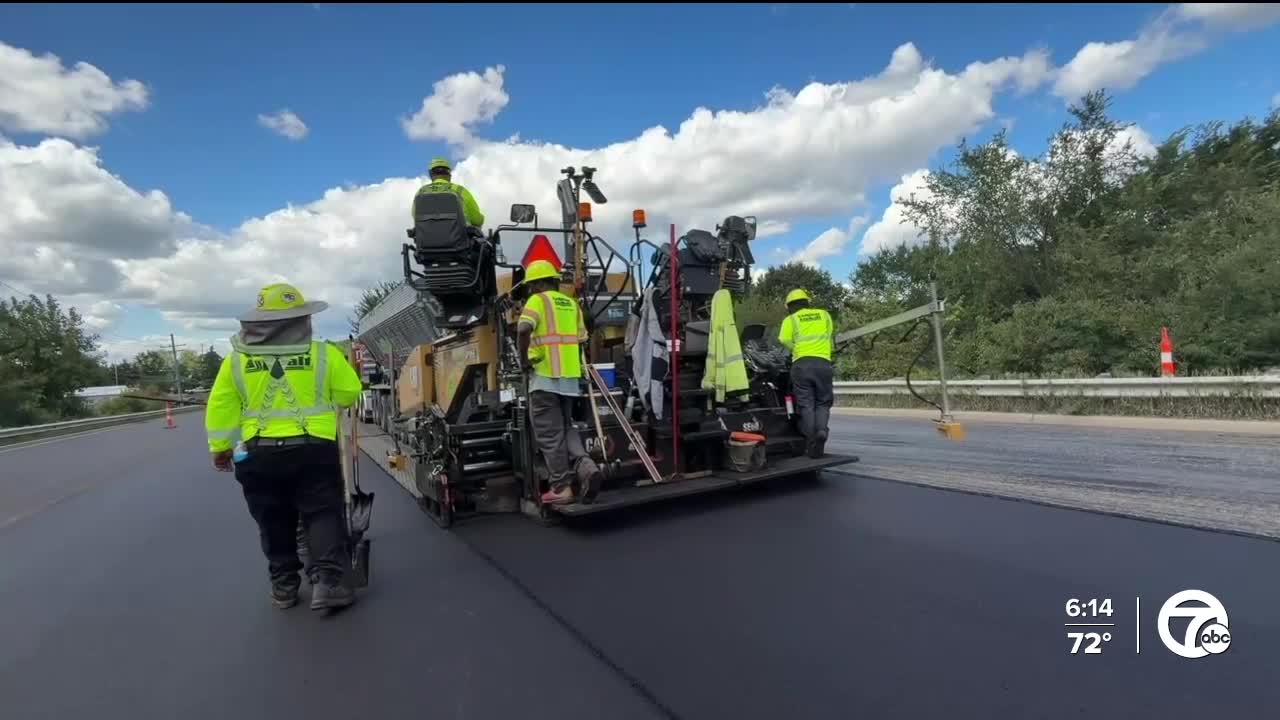PITTSFIELD TOWNSHIP, Mich. (WXYZ) — Nearly 20,000 vehicles drive on Ellsworth Road every single day, and now the high-volume road is part of a research project evaluating the performance of rubber asphalt made from scrap tires.
Watch Evan Sery's video report:
It's a first for the Washtenaw County Road Commission, though the technology has been used in other areas of the state.
"It's been done around the state and several areas, but first time here," Neeko Robison said.

Project Manager Robison says this nearly one-mile stretch of Ellsworth Road in Pittsfield Township is getting a unique makeover as crews work on innovative ways to keep roads from cracking as cooler temperatures begin to creep in.
"We're all very excited about this innovation," Robison said.
This isn't your average asphalt.
"We're paving two inches of asphalt, using our rubberized asphalt mix," Robison said.
That mix includes scrap tires — something the Department of Environment, Great Lakes, and Energy, or EGLE, says can contaminate water and breed disease-carrying mosquitoes if not properly managed.
Before any asphalt is poured and paved, a tire processor cuts the tires into tiny rubber granules, removing any metal.
"And you get the rubber part, and then you have to grind that so the rubber we utilize is pretty much a powder," Sephr Mohammadi said.

Mohammadi is one of several Michigan Technological University PhD students who made the nine-hour drive from Houghton to oversee this week-long project.
The EGLE-funded project is a partnership between Michigan Technological University and the Washtenaw County Road Commission.
"We want to show the benefits in terms of performance and also environmental impact," Mohammadi said.
University research shows the impact is significant. Though the road commission says rubber asphalt is slightly more expensive, it reduces rutting and cracks while extending a road's life and lowering noise levels.
"We have cold temperature cracking resistance; we must make sure that in Michigan, we have sufficient resilience against cold temperature cracking," Mohammadi said.
And it's not just Washtenaw. At the end of 2024, EGLE grants funded over 300 miles of rubber-modified pavement in over 30 communities across Michigan.
"We want to be efficient with the money we're spending. The longer a road lasts, the better off we are," Robison said.
—————————————
This story was reported on-air by a journalist and has been converted to this platform with the assistance of AI. Our editorial team verifies all reporting on all platforms for fairness and accuracy.





